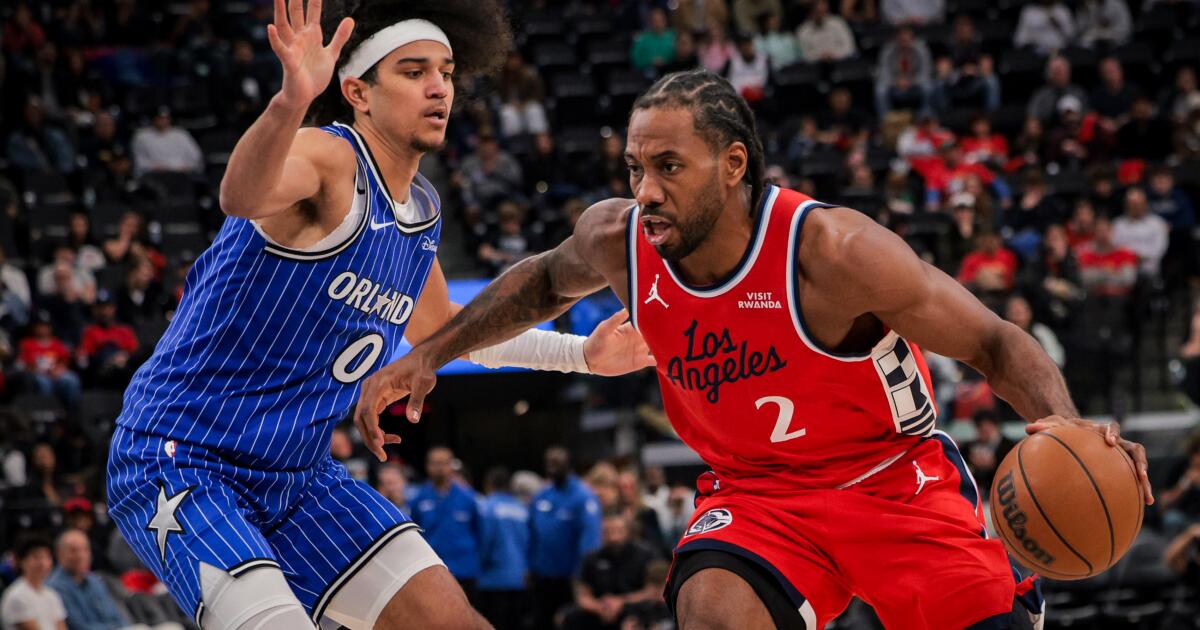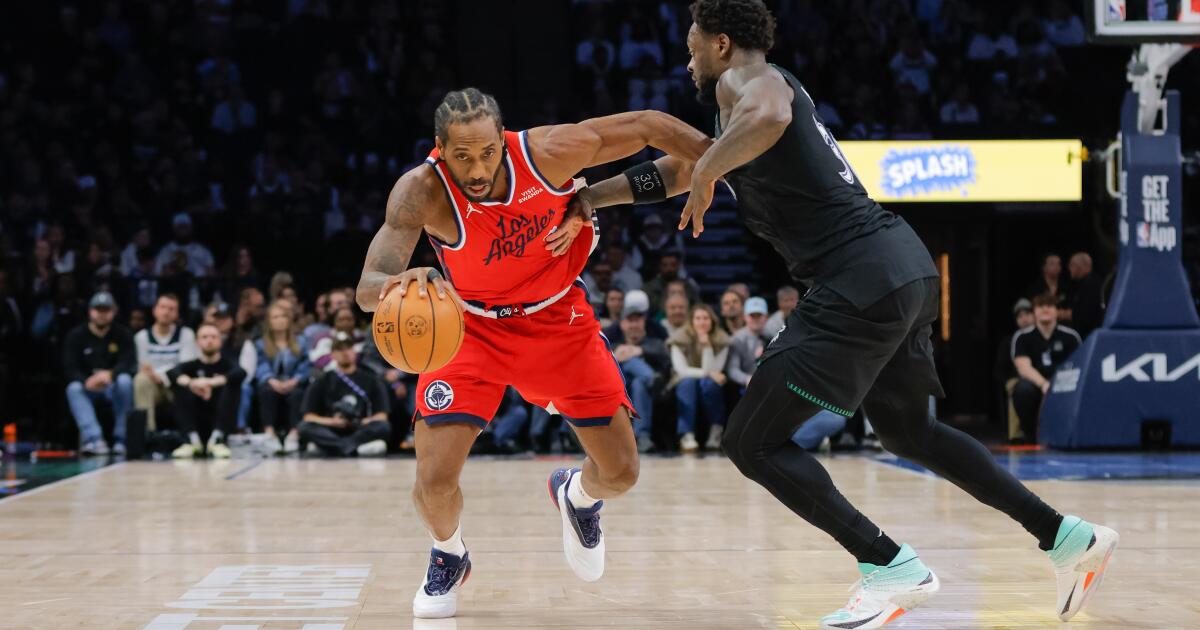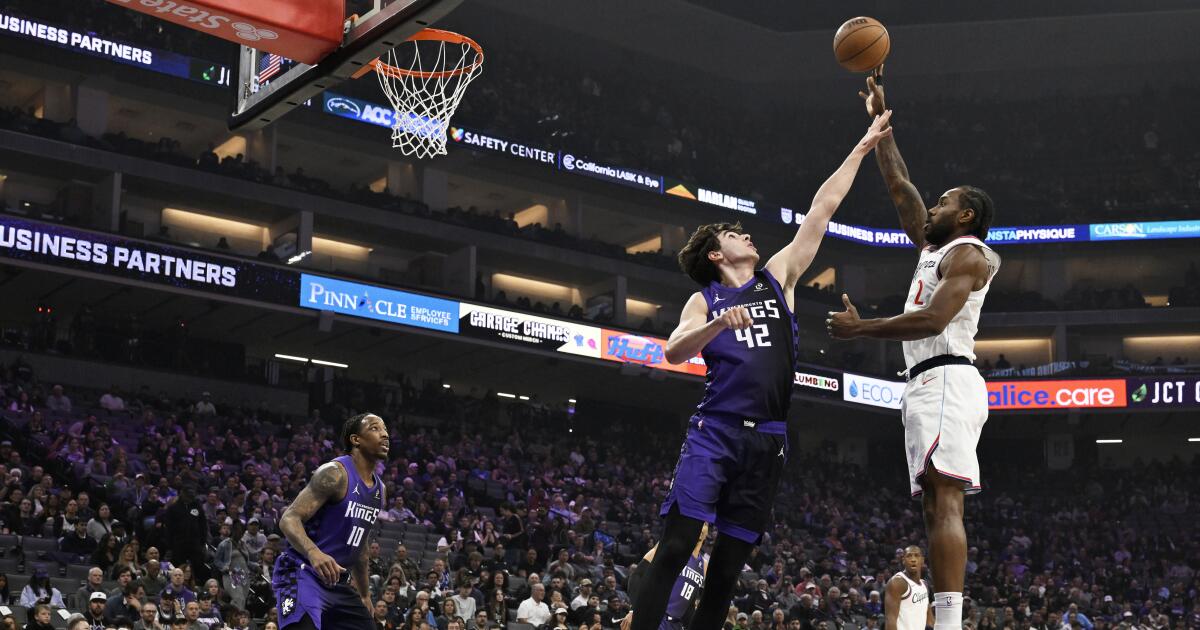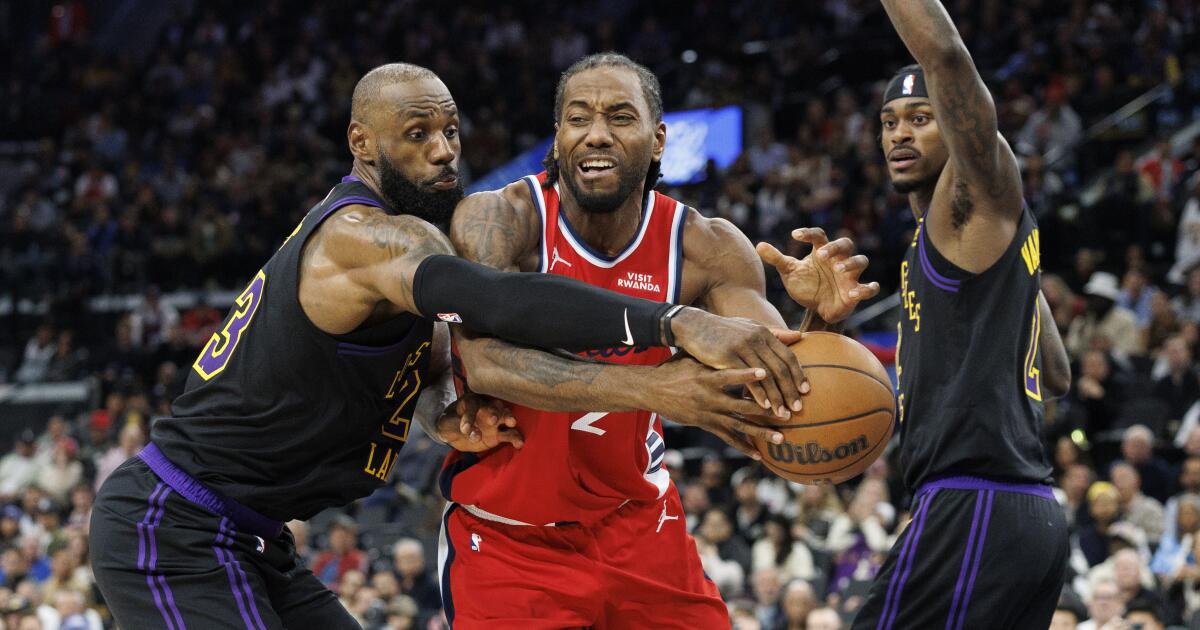Slumping Clippers get 37 points from Kawhi Leonard but fall to the Magic.
Desmond Bane scored 36 points and Paolo Banchero added 16 points and eight assists as the Orlando Magic held on for a 111-109 victory over the Clippers on Sunday night at Intuit Dome.
Wendell Carter Jr. had 15 points and 14 rebounds and Tristan da Silva scored 13 for the Magic, who improved to 5-2 since Feb. 5.
Kawhi Leonard shrugged off an ankle injury to score 37 points and Bennedict Mathurin added 21 points and nine rebounds off the bench for the Clippers, who are 4-5 since Feb. 2. Mathurin missed a three-point attempt to win the game at the buzzer.
Jordan Miller had 14 points for the Clippers (27-30).
Leonard exited Friday’s loss against the Lakers with an ankle sprain. Mathurin was playing in his fifth game for the Clippers after he was acquired at the trade deadline from the Indiana Pacers.
Orlando won despite going eight of 23 from three-point range, two games after setting a franchise record with 27 three-pointers in a victory at Sacramento. Jalen Suggs missed his second consecutive game for the Magic with back spasms.
In a tight game throughout, Leonard gave the Clippers a 107-105 lead with 3:03 remaining on a jumper from the top of the key. The Magic took charge from there as Bane hit a jumper to tie the score and then made a layup with 1:28 left for a 109-107 advantage.
As the Clippers missed four consecutive shots, Orlando went up 111-107 on a fast-break dunk from Banchero with 40 seconds left.
Bane tried to pad the Magic’s lead with eight seconds remaining but had his shot blocked inside by rookie Yanic Konan Niederhauser. Mathurin then raced down the floor only to miss a 25-footer as time expired.



